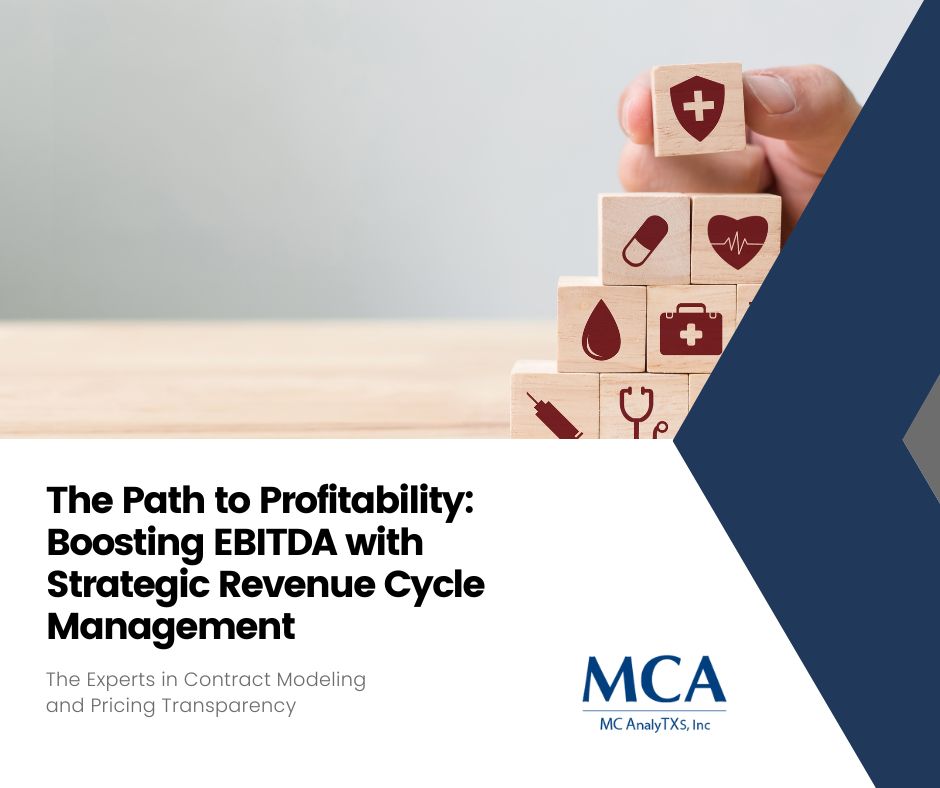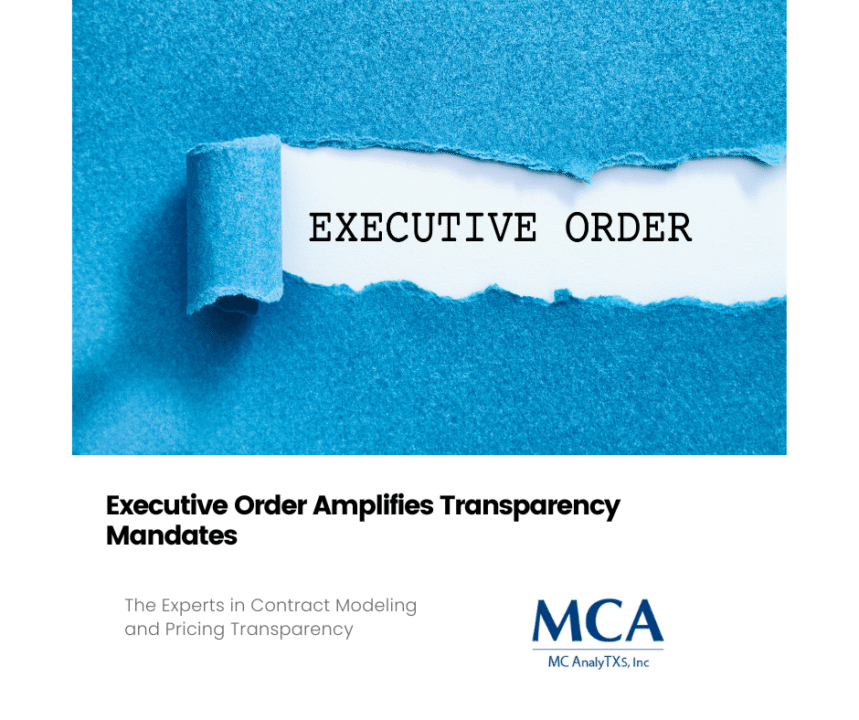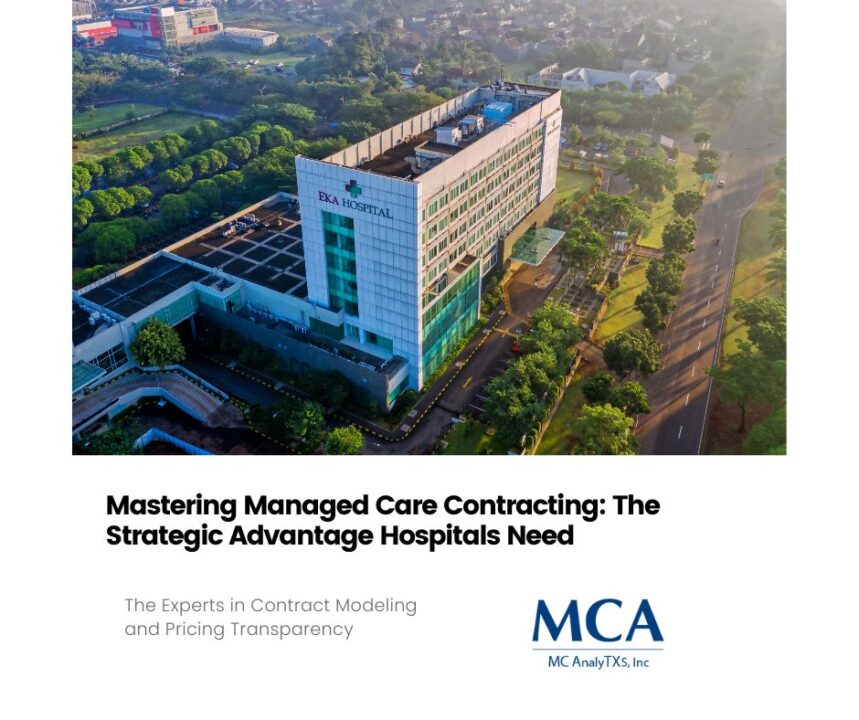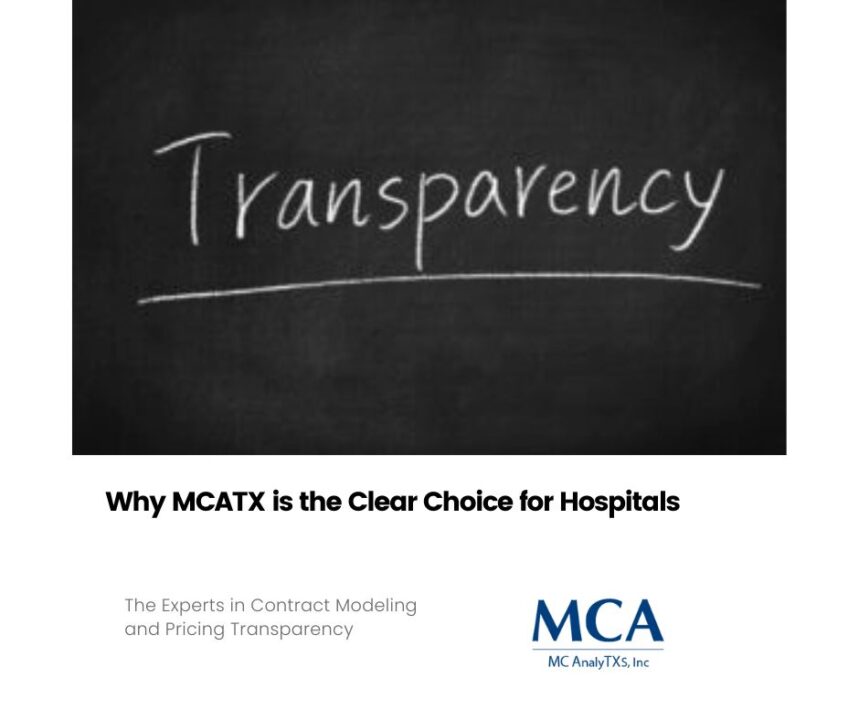
Strategies Beyond Cost-Cutting for Healthcare Revenue Recovery
March 29, 2024
CMS Finalizes 2025 Medicare Advantage Rates: The Strategic Imperatives for Insurers
April 3, 2024In the ever-evolving landscape of healthcare, profitability is a critical component that directly influences the ability of providers to deliver quality care. With increased pressures from regulatory changes, shifting payer models, and global pandemics, it has become more essential than ever for healthcare providers to streamline their operations and solidify strategies that lead to profitability. One such strategy is optimizing the Revenue Cycle Management (RCM) process — the financial heartbeat of any healthcare organization.
In this comprehensive guide, you will uncover the intricate relationship between RCM, EBITDA, and profitability for healthcare providers. We will discuss what RCM entails, how it can impact EBITDA, and the best practices for selecting and working with a high-performing RCM team. We will also take a deep dive into navigating and leveraging critical CMS updates to bolster your financial health.
Defining the Path to Profitability in Healthcare
For healthcare providers, profitability is more than just a financial metric; it represents the organization’s ability to sustain and expand its services. This path is characterized by a nuanced interplay of operational efficiency, cost control, and revenue generation, all of which are significantly influenced by the performance of the revenue cycle.
A healthcare provider’s success in achieving a strong EBITDA — an acronym for Earnings Before Interest, Taxes, Depreciation, and Amortization — is a telltale sign of its financial robustness. This metric, often scrutinized by investors and board members, measures the company’s operational profitability by excluding non-operating expenses, providing a clear picture of core business performance.
Understanding the Role of Revenue Cycle Management (RCM)
Revenue Cycle Management encompasses the entire lifespan of a patient account, from the pre-service financial clearance to the payment of the final patient responsibility. It involves complex interactions with patients, payers, and regulatory bodies. While it may seem purely administrative, RCM’s impact permeates across all areas of a healthcare business, affecting clinical operations, staffing decisions, and even patient satisfaction.
RCM efficiency not only accelerates the speed at which revenue is collected but also minimizes revenue leakage, ensures proper reimbursement, and maintains compliance with governmental and insurance regulations.
How the Right RCM Team Can Boost EBITDA for Healthcare Providers
The backbone of any successful RCM strategy is the team executing it. A proficient RCM team can significantly contribute to boosting EBITDA through various means:
Leveraging Technology
Sophisticated revenue cycle technologies can automate processes, reduce error rates, and provide critical data for decision-making. Implementing or optimizing electronic health record (EHR) systems, utilizing revenue cycle analytics, and adopting AI solutions can all contribute to cost reductions and revenue enhancements.
Enhancing Patient Experience
Focusing on patient-centric financial interactions not only improves satisfaction but also enhances revenue recovery. Streamlined billing processes, transparent pricing discussions, and convenient payment options can significantly reduce uncollectible accounts and bad debts.
Administrative Optimization
Strong RCM teams have the knowledge and expertise to streamline administrative tasks, reducing the time and resources required to manage claims, appeal denials, and recover receivables. This operational efficiency directly impacts the bottom line through cost savings and improved cash flow.
Navigating CMS Updates and Their Impact on EBITDA and RCM
The Centers for Medicare & Medicaid Services (CMS) plays a pivotal role in shaping the healthcare reimbursement landscape. Updates to CMS regulations and payments can have a profound influence on EBITDA and the strategies that an RCM team must employ to maintain profitability.
Keeping abreast of changes in value-based payment models, updates to the Medicare Physician Fee Schedule, and revisions to Conditions of Participation is crucial. It demands a vigilant RCM approach that can swiftly adapt to new requirements, ensuring compliance without a significant impact on revenue collection.
Best Practices for Selecting and Working with an Effective RCM Team
An effective RCM team is not merely a cost center but a strategic partner in the pursuit of profitability. To ensure you have the right team in place, consider the following best practices:
Competency and Resource Allocation
Evaluate the RCM team’s expertise in regulatory and payer requirements. Ensure that they have the necessary resources, including training, staffing, and system support, to handle the complexities of the healthcare revenue cycle.
Performance Monitoring and Continuous Improvement
Implement a system of key performance indicators (KPIs) to monitor the RCM team’s performance. Regularly review metrics such as days in accounts receivable (A/R), denial rates, and cash collections to identify areas for improvement and act accordingly.
Integration with Clinical Operations
Encourage collaboration between the RCM team and clinical staff to ensure that billing and coding are aligned with care delivery. This integration can minimize overlooked charges and optimize documentation for maximum reimbursement.
Adaptable and Innovative Mindset
Choose an RCM team that is forward-thinking and open to innovation. With the healthcare industry in a constant state of flux, the ability to adapt quickly to changes and leverage emerging trends is indispensable.
Conclusion: The Future of Profitability in Healthcare and the Importance of Ongoing RCM Strategies
In conclusion, the road to profitability for healthcare providers lies in developing and nurturing a robust RCM process. By focusing on the interplay between RCM, EBITDA, patient experience, and operational excellence, providers can optimize financial performance while maintaining high standards of care.
The future of profitability in healthcare will continue to be shaped by new technologies, changing regulations, and evolving patient expectations. By championing a dynamic RCM team, providers can establish a sustainable path to financial success, enabling them to invest in the quality and growth of their services.
To stay ahead, prioritize ongoing education and training for your RCM team, invest in cutting-edge technologies, and foster a culture of continuous improvement. In doing so, you will not only boost your EBITDA but also secure a bright and resilient future for your organization in the challenging yet rewarding landscape of modern healthcare.





